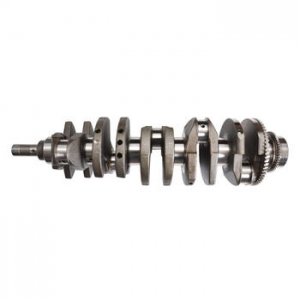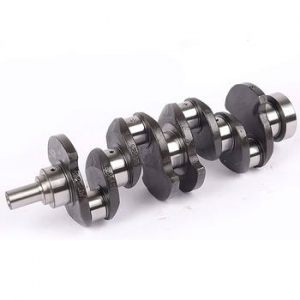Uncovering the Unseen Culprit
Engine performance enthusiasts often spend countless hours fine-tuning their engines for optimal power output at high RPMs. But have you ever stopped to consider the role that crankshaft flex might play in your engine's overall performance? It turns out that this seemingly minor component can have a significant impact on horsepower and torque production.
The Science Behind Crankshaft Flex
As it turns out, crankshaft flex is an unavoidable phenomenon in internal combustion engines. As the engine cycles through its power strokes, the force generated by the explosions within the cylinders causes the crankshaft to twist and deflect. This flexing can lead to several issues, such as decreased bearing life, misaligned connecting rods, and even engine damage in extreme cases.
The Connection to High-RPM Performance
Now that we understand what crankshaft flex is and why it occurs, let's explore how it specifically affects engine performance at high RPMs. When an engine operates at higher speeds, the forces acting on the crankshaft increase exponentially. This means that the crankshaft will flex more dramatically than it would at lower RPMs, which can result in several negative consequences for engine performance.
Reduced Accuracy and Efficiency
One of the primary issues caused by crankshaft flex at high RPMs is reduced accuracy and efficiency. As the crankshaft twists and deflects, it can cause the connecting rods to become misaligned. This misalignment can lead to increased friction and wear on the engine's internal components, ultimately resulting in reduced power output and decreased fuel efficiency.
Decreased Engine Durability
Another concern related to crankshaft flex at high RPMs is decreased engine durability. The increased stress on the crankshaft and its associated components can lead to premature wear and potential engine failure. This is especially true for engines that are pushed to their limits in terms of power output and RPMs.
Minimizing the Negative Effects of Crankshaft Flex
Now that we've discussed the potential issues caused by crankshaft flex at high RPMs, let's explore some ways to minimize its impact on engine performance. By taking a few proactive steps, you can help ensure that your engine remains powerful, efficient, and durable even when pushed to its limits.
In Conclusion: Don't Overlook the Importance of Crankshaft Flex
In my experience, many engine enthusiasts overlook the importance of crankshaft flex when it comes to optimizing engine performance at high RPMs. By taking the time to understand the science behind crankshaft flex and implementing a few proactive measures, you can help ensure that your engine remains powerful, efficient, and durable even when pushed to its limits.
So, what are you waiting for? Take a closer look at your engine's crankshaft and see if there are any areas where you can make improvements. Your engine (and your wallet) will thank you in the long run.




